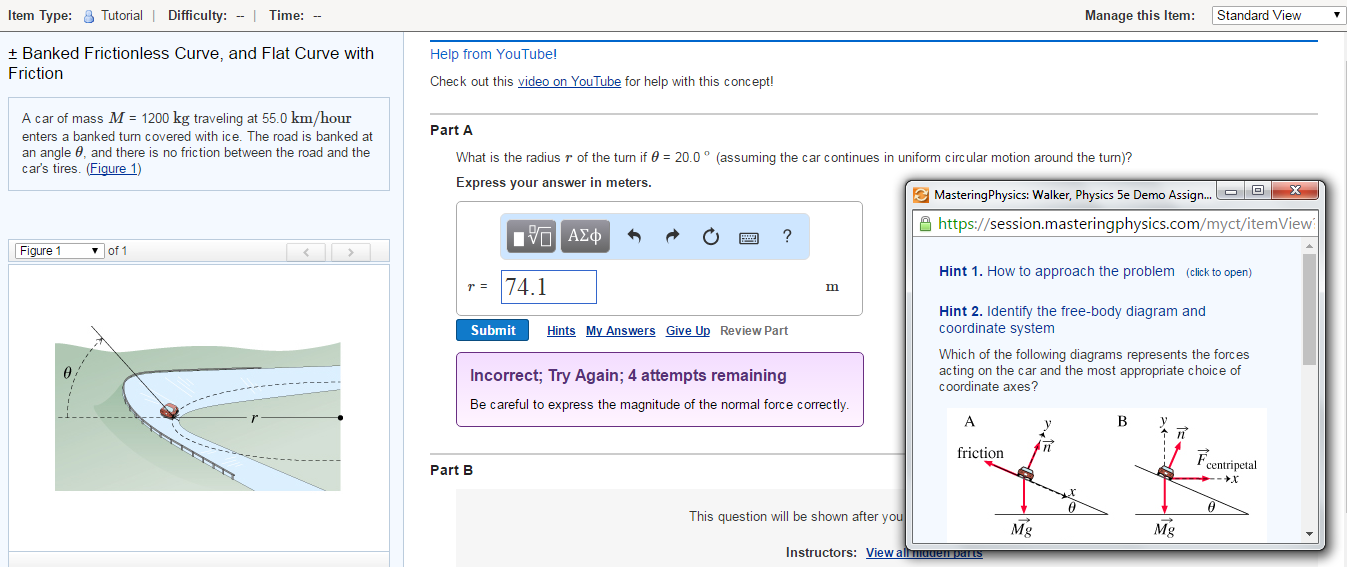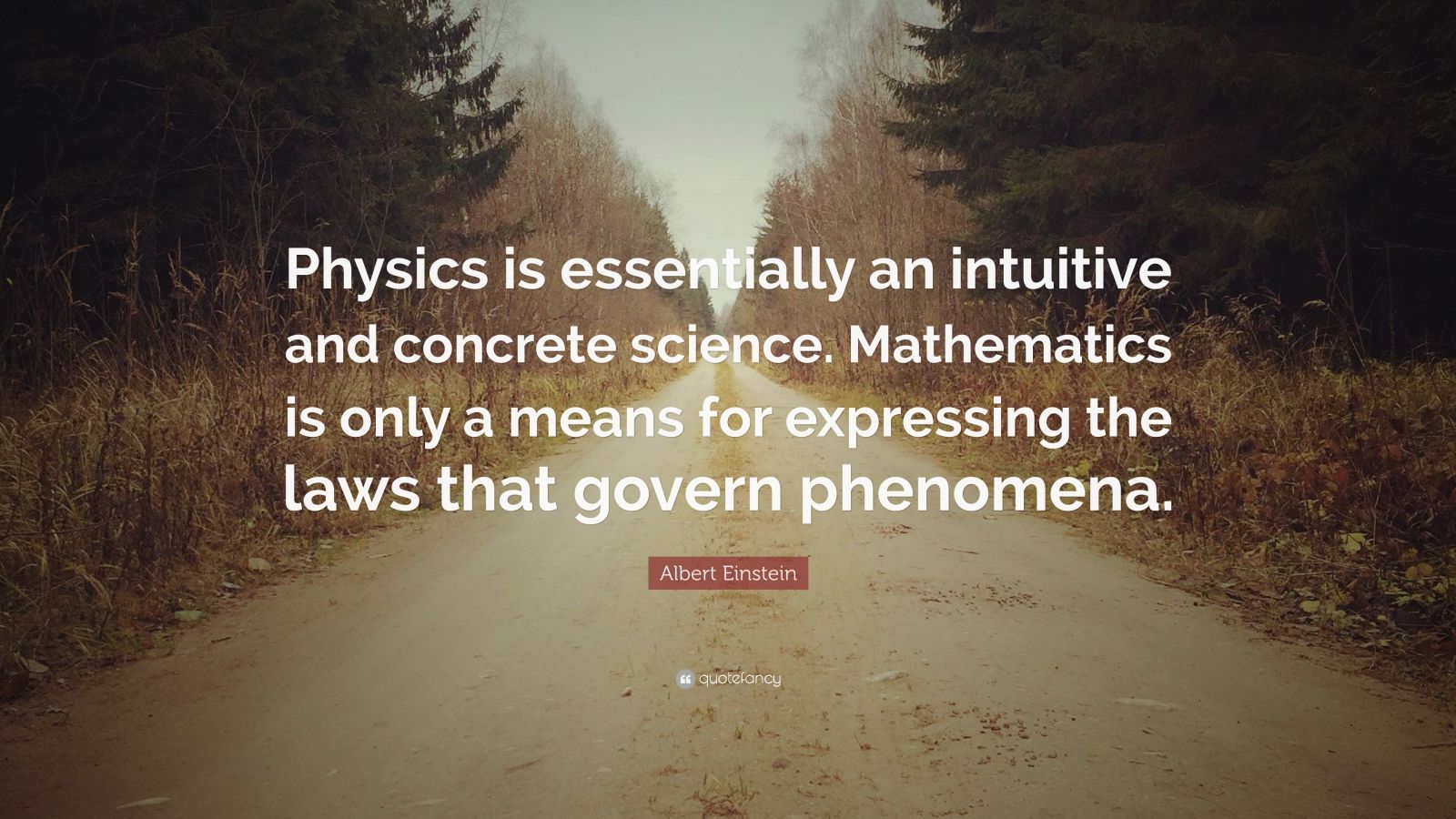Mastering Physics through Intuition and Understanding
Physics is one of the most interesting yet challenging subjects to learn. It requires not just calculations but a deep conceptual understanding of the underlying principles and phenomena. In this article, we will discuss various tips and strategies to truly master physics by developing strong intuition in addition to problem-solving skills.
Focus on Intuition over MemorizationPermalink
A really important thing to realize is that physics is not just about math. While calculations are necessary, having good intuition is equally important. Many physics students lack this innate understanding and instead rely on memorizing formulas without comprehending their significance. The key is to avoid memorization altogether and see how everything is interconnected through fundamental principles. If you grasp the core concepts, you shouldn’t need to memorize much. Solve problems without looking at solutions to build your conceptual knowledge from the ground up. Spending time getting “stuck” on a challenge is much more valuable than quick lookups. Giving up too easily will not help you grow as an intuitive physicist.

Prioritize Deep Understanding over GradesPermalink
It’s all too common to focus on getting good exam scores rather than truly absorbing the material. While grades matter, the priority should be comprehending physics at its foundations. Students excelling on tests may still lack a intuitive grasp compared to their peers with weaker scores but stronger conceptual insights. The goal is to gain profound understanding that will easily lead to good performance, not the other way around. Take your time with difficult topics until you reach that crucial “Aha!” moment of realization rather than superficial memorization for short-term results.
Use Dimensional Analysis Before CalculationsPermalink
An effective technique is dimensional analysis before diving into lengthy calculations. For example, if studying a thermal system of gas particles, we can identify relevant constants like Boltzmann’s constant and temperature from the beginning. We also recognize the characteristic energy scale will be thermal energy. From here, we arrive at the famous thermal de Broglie wavelength without complex math initially. Dimensional reasoning provides valuable insight into identifying the “scale” and key influences in any physical problem. It allows intuiting solutions or checking work more easily.
Apply Concepts through Non-Trivial Practice ProblemsPermalink
To master a new concept, it’s invaluable to work through diverse non-trivial practice exercises without referring to answers. Being okay with prolonged struggles leads to those profoundly satisfying moments of clarity. Simply looking up steps defeats the purpose of developing intuition through interactive problem-solving. Give yourself time to think critically and creatively rather than quick solutions. This trains the mind to intuitively apply fundamental principles in any physical scenario. It’s also helpful to think through problems verbally to solidify conceptual rather than numeric understanding.
Embrace being “in the Dark” as a ResearcherPermalink
Aiming to be just a good student is different than aspiring to research-level understanding. True exploration requires comfort with ambiguity rather than always knowing the answer. Get research experience as early as prerequisites allow to get acclimated to learning through discovery versus structured coursework. Physicists excel at improvising solutions through intellectual agility rather than memorization alone. Accept that confusion is natural and play with ideas freely without fixation on perfection initially. Overall, an open mindset suited for pioneering new frontiers is key.
Leverage Physical Intuition through AnalogiesPermalink
Some problems can be conceptually attacked before math through limiting cases, symmetries or physical analogies. For example, deriving Kepler’s third law for a small mass orbiting a much larger one. We can reason the period T must be related to radius R, gravitational constant G, and large mass M just from Newton’s law and dimensions. Then simulating the physical motion aids visualization. Associating new scenarios to familiar examples nurtures visceral intuition complementing theoretical understanding.
Calculate Mentally to Internalize Concepts DeeplyPermalink
Once a threshold of comprehension is reached, simulate scenarios mentally and calculate solutions simultaneously in your head. Repeatedly thinking through concepts aids cementing them intrinsically. For instance, visualizing centrifugal force felt in turning a car involves simulating circular motion while calculating centripetal acceleration and force values given speed, mass, and radius turning factors. Over time, this kind of active conceptualization becomes second nature, allowing physicists to intuitively grasp any physical situation described.
Take Breaks and Have Fun with Your StudiesPermalink
Learning physics is difficult and it’s okay to feel lost at times. Make sure to schedule breaks and diversions to recharge mentally. Remember why you were drawn to this fascinating field in the first place - the sheer joy of discovery! Developing a growth mindset that embraces challenges will serve you well throughout your academic and research career. Most of all, cherish the immense satisfaction of pushing past obstacles to gain profound physical understanding that seemed unattainable before.
In SummaryPermalink
Mastering physics demands going beyond formulas to nurturing strong intuitive grasp. Focus on unraveling the conceptual threads weaving diverse phenomena together rather than grades or quick solutions. Leverage physical reasoning, analogies, and visualization to strengthen grasp. Actively thinking through scenarios aids internalizing comprehension deeply on a felt, instinctive level. With diligent practice applying varied strategies over time, anyone can develop the expert-like intuition of a physicist. Most importantly, immerse yourself fully yet lightheartedly in this endlessly fascinating pursuit.
I hope these multi-faceted tips provide a helpful starting point for physics enthusiasts seeking to elevate their understanding to the next level. With patience and passion, any goal within scientific exploration is attainable.

